
This article is more than
9 year oldState media said at least 78 people were killed, while a monitoring group put the death toll at more than 120.
Four bombings targeted bus stations in the port city of Tartous and in Jableh, a town to the north, which have until now escaped the worse of the civil war.
A news agency linked to so-called Islamic State (IS) said the jihadist group was behind the attacks.
Amaq cited an IS source as saying militants had targeted "gatherings of Alawites", a reference to the heterodox Shia sect to which President Bashar al-Assad belongs.
Russia - a key backer of Mr Assad - has a naval base in Tartous and an airbase near Jableh, f-rom whe-re it has conducted air strikes on IS targets across Syria.
The state news agency, Sana, cited a police source as saying that 45 people were killed and many others, most of them women and children, were injured in Jableh.
It reported that two bombs exploded at the main entrance of the town's bus station.
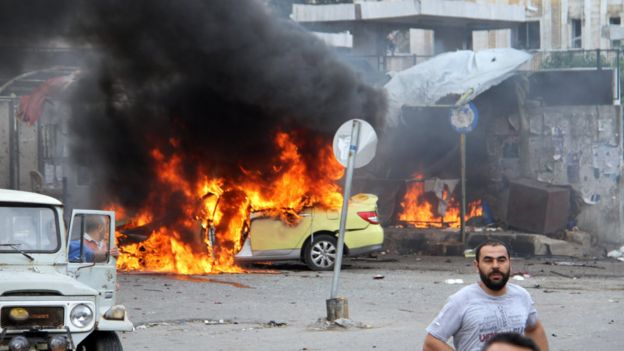 AP
AP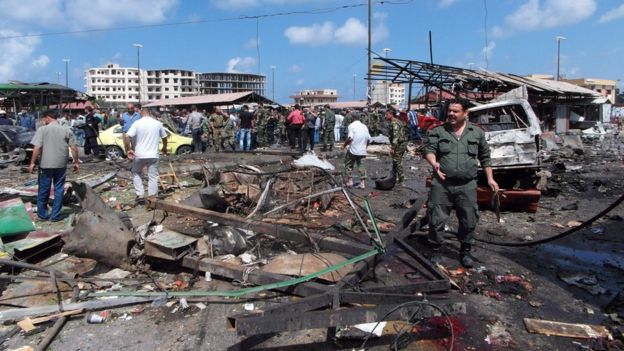 AFP
AFPA suicide bomber also blew himself up at the entrance of the emergency department at Jableh National Hospital, it added.
The fourth blast reportedly occurred near the offices of Jableh's electricity directorate, on the outskirts of the Amara residential district.
In Tartous, more than 33 people were killed and 47 injured, Sana said.
A car bomb was detonated at the main gate to the city's bus station, while a suicide bomber detonated an explosive vest inside the facility, it added.
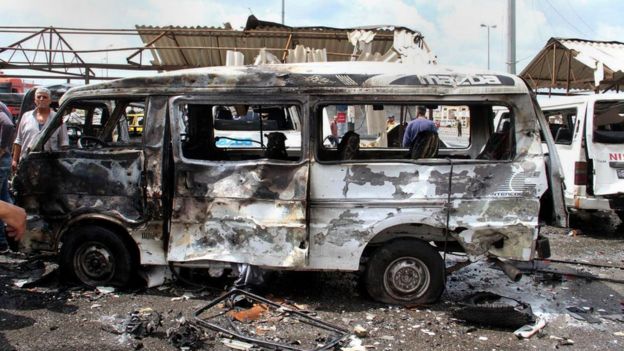 AP
AP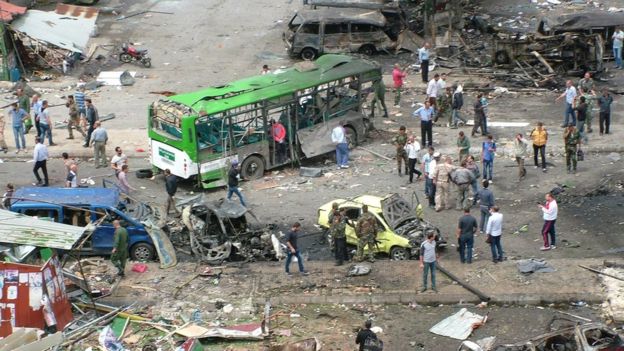 AP
APAnother bomber blew himself up in a residential area in the west of the city, according to Sana.
The Syrian Observatory for Human Rights, a UK-based monitoring group which relies on a network of sources on the ground, reported that 73 people were killed in Jableh and another 48 in Tartous.
It also said the two bombings at the bus station in Jableh were suicide attacks.
Information Minister Omran al-Zoubi said terrorist groups were resorting to bomb attacks against civilians because they were unable to fight the Syrian army.
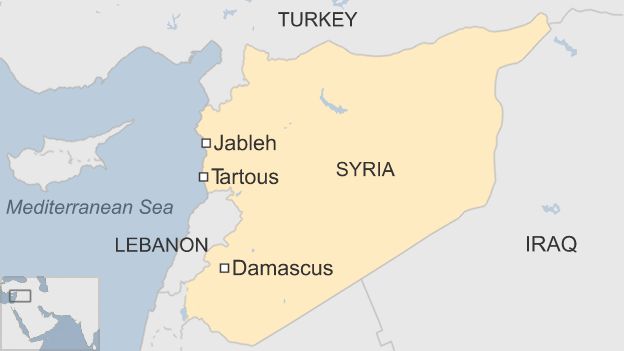
"We will not be deterred," he told al-Ikhbariya TV. "We will use everything we have to fight the terrorists."
Russia expressed concern at the blasts and said they underscored the need to continue peace talks between the government and opposition.
"Of course a rise in tension and terrorist activity cannot but heighten concern. It is further proof of how fragile the situation is in Syria and demonstrates the necessity to continue active steps towards resuming talks," Kremlin spokesman Dmitry Peskov told reporters in Moscow.
Asked whether Russia would consider its decision in March to withdraw most of its forces f-rom Syria, Mr Peskov pointed to a statement by President Vladimir Putin, noting that the country's infrastructure allowed for a "very flexible approach".
IS, which is fighting both government and rebel forces trying to topple Mr Assad, has killed scores of people in suicide bombings in Damascus and Homs this year.